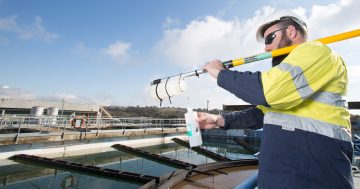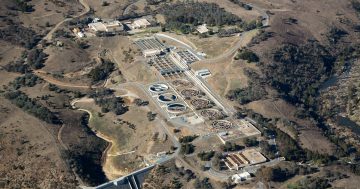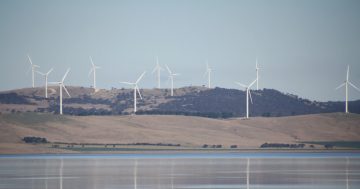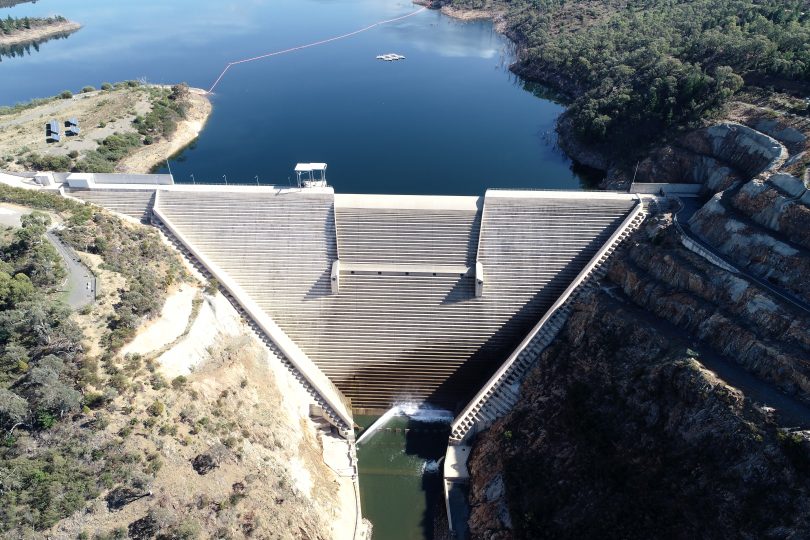
Icon Water will work with the ACT community to reduce the stress on local catchments and infrastructure such as Cotter Dam. Photo: Icon Water.
With the COP26 Glasgow Climate Pact setting the global agenda on climate change for the next decade, Icon Water has stepped up its commitment to protecting our planet and providing safe and reliable water services to help enhance the life and liveability of the ACT.
Icon Water has joined water utilities from across Australia in the Race to Zero global campaign, a United Nations-backed initiative aimed at rallying support from businesses and cities worldwide to achieve net zero carbon emissions by 2050 at the latest.
Icon Water managing director Ray Hezkial said joining the Race to Zero initiative naturally aligns with planning the Canberra company has already undertaken to reduce its carbon footprint and help ensure the ACT’s water security.
“As a collective, we have an obligation to future generations and ourselves as custodians of one of our planet’s natural resources,” said Mr Hezkial. “I believe our legacy as an industry will ultimately be measured by our sense of urgency in protecting it.”
He said Icon Water is committed to reducing its carbon emissions, and strongly supports the ACT Climate Change Strategy target of net zero emissions by 2045.
Icon Water environment and sustainability manager Ben Bryant said with the worldwide focus on the Glasgow Climate Pact, now is the time for large organisations to step up to the Race to Zero challenge and lead by example.
“There is a lot of hope and good intention around rising to this challenge,” he said.
“We know the impact of climate change. We have the science, and the requirement is clear. We need to act now.
“In Canberra, in particular, we are entirely dependent on our local weather and local water cycle, and we want to make sure we take steps to protect our local environment because we depend on it.”

Icon Water is reusing its waste as high-quality soil conditioner. Photo: Icon Water.
Icon Water is committed to ensuring Canberra’s water infrastructure can withstand changing climate conditions now and into the future.
Mr Bryant said climate change will have an impact on Canberra’s water security due to reduced inflows into catchments, increased treatment due to more algal blooms, and increased blockage of sewerage pipes caused by tree roots seeking out water.
He said Icon Water is continuously working towards developing new sustainability initiatives such as its ‘No Opportunity Wasted’ program, which supports the effective reuse of resources that would potentially be wasted.
As part of the program, the residue from wastewater processing is converted into Agri-Ash, which is reused by local farmers as a soil enhancer.
Icon Water is also collaborating with the water industry to find ways to reduce nitrous oxide emissions produced by wastewater treatment activities.
As an essential service provider, Icon Water’s purpose is to work closely with the Canberra community to sustain and enhance the quality of life for all Canberrans.
“That is why we are committed to planning for the future and building resilience to both existing and future climate change,” said Mr Hezkial.
The race to a resilient, zero-emissions economy before 2050 is a race to a healthier future, with fewer premature deaths caused by dirty air and water, and fewer natural disasters, food shortages and other impacts of climate change.
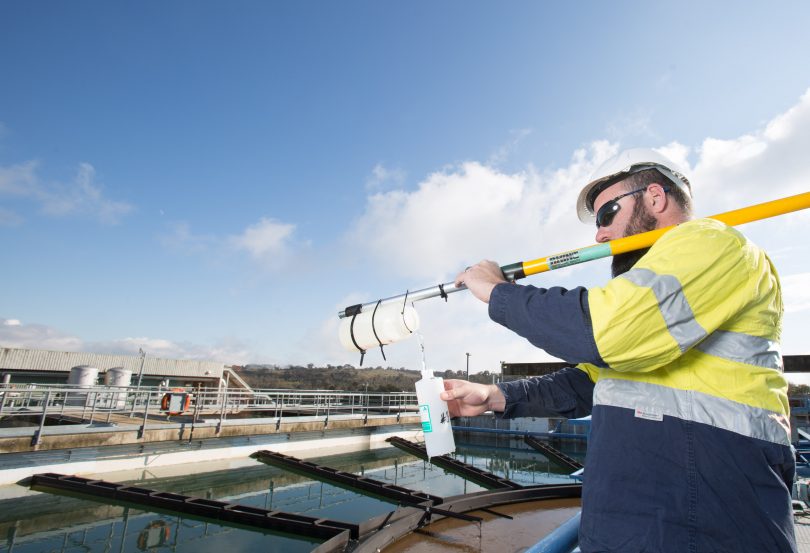
Icon Water is aiming to reduce nitrous oxide emissions produced by wastewater treatment activities. Photo: Icon Water.
The World Health Organization (WHO) recently recommended 10 priority actions for addressing the climate and health crises together, including placing health and social justice at the heart of COP26 talks; protecting and restoring nature; and promoting healthy, sustainable and resilient food systems.
The WHO manifesto calls for supporting nature, essential services such as water and sanitation, the energy transition, healthy and sustainable food systems and liveable cities.
Icon Water’s ‘Climate Change Adaptation’ plan aims to eliminate greenhouse gas emissions and improve energy efficiency through emission reduction programs.
It will collaborate with partners and the community through education and water conservation programs to reduce stress on our local catchments, and work with the community and supply chain to help prepare and adapt to the impact of climate change.












